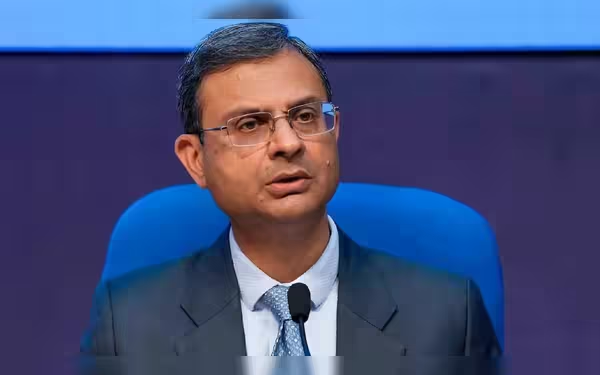Saturday, December 21, 2024 04:55 PM
India's AEO Programme Covers 6000 Entities, Enhances Trade Efficiency
- 6000 entities now part of AEO programme.
- AEO accounts for 37% of bill-of-entries.
- India strengthens global trade through MRAs.
 Image Credits: menafn
Image Credits: menafnIndia's AEO programme now covers 6000 entities, accounting for 37% of bill-of-entries, enhancing trade security and efficiency.
The Authorised Economic Operator (AEO) programme is a significant initiative that plays a vital role in enhancing trade security and efficiency. Launched in 2011 and strengthened in 2016, this programme operates under the World Customs Organisation's SAFE Framework of Standards. It aims to create a secure and efficient trading environment by recognizing businesses that meet specific criteria for compliance and security. Recently, Revenue Secretary Sanjay Malhotra highlighted the success of this programme, noting that approximately 6,000 entities are now covered under it, accounting for 37 percent of all bill-of-entries processed in India.
The AEO programme is not just about compliance; it fosters collaboration among various stakeholders in the supply chain, including importers, exporters, and logistics providers. This cooperation is essential for enhancing cargo security and streamlining trade processes. Malhotra emphasized the importance of technological innovation in this context, stating that India is committed to transforming its international trade operations through the AEO programme. With billions of bills of entry and shipping documents generated annually, the role of advanced technology cannot be overstated.
As part of its modernization efforts, India has already automated 17 out of its 20 major ports. The government is working towards digitizing and streamlining all port services, ensuring that they are accessible online at all times. This move is expected to significantly reduce delays and improve the overall efficiency of trade operations. Furthermore, Malhotra pointed out the importance of expanding Mutual Recognition Agreements (MRAs) with other countries. These agreements facilitate reciprocal trade benefits, making it easier for businesses to operate across borders.
India has already initiated joint action plans with several nations, including Uganda, South Africa, Japan, the United Kingdom, and BRICS countries. A notable development during the recent Global AEO Conference was the signing of a joint action plan with Brazil, aimed at establishing a new MRA. This step is expected to enhance India's global trade connectivity and position it as a leader in international trade.
Moreover, the Revenue Secretary expressed India's commitment to assisting developing countries in establishing robust AEO programmes. By sharing expertise and promoting trust-based strategies, India aims to contribute to the global standardization of trade facilitation mechanisms. This initiative not only strengthens India's position in the global trade landscape but also fosters a spirit of cooperation and mutual growth among nations.
The AEO programme represents a significant leap forward in India's trade strategy. By prioritizing security, efficiency, and international collaboration, India is setting a benchmark for other nations to follow. As the global trade environment continues to evolve, initiatives like the AEO programme will be crucial in ensuring that countries can navigate the complexities of international commerce effectively. The future of trade looks promising, and with continued innovation and cooperation, India is well on its way to becoming a trusted trade hub on the world stage.













